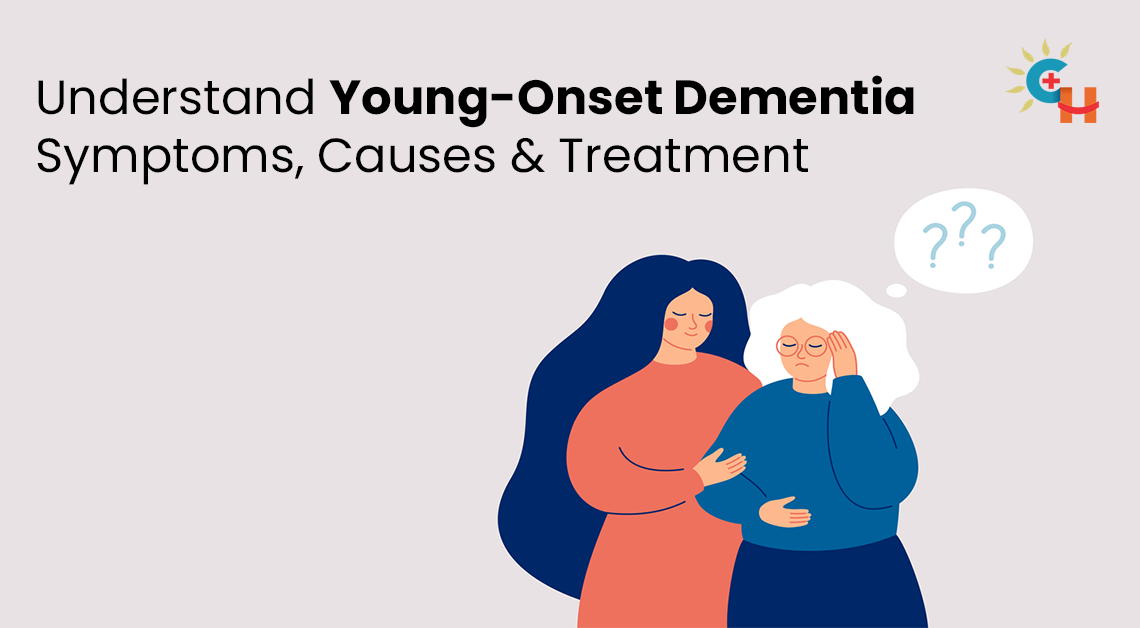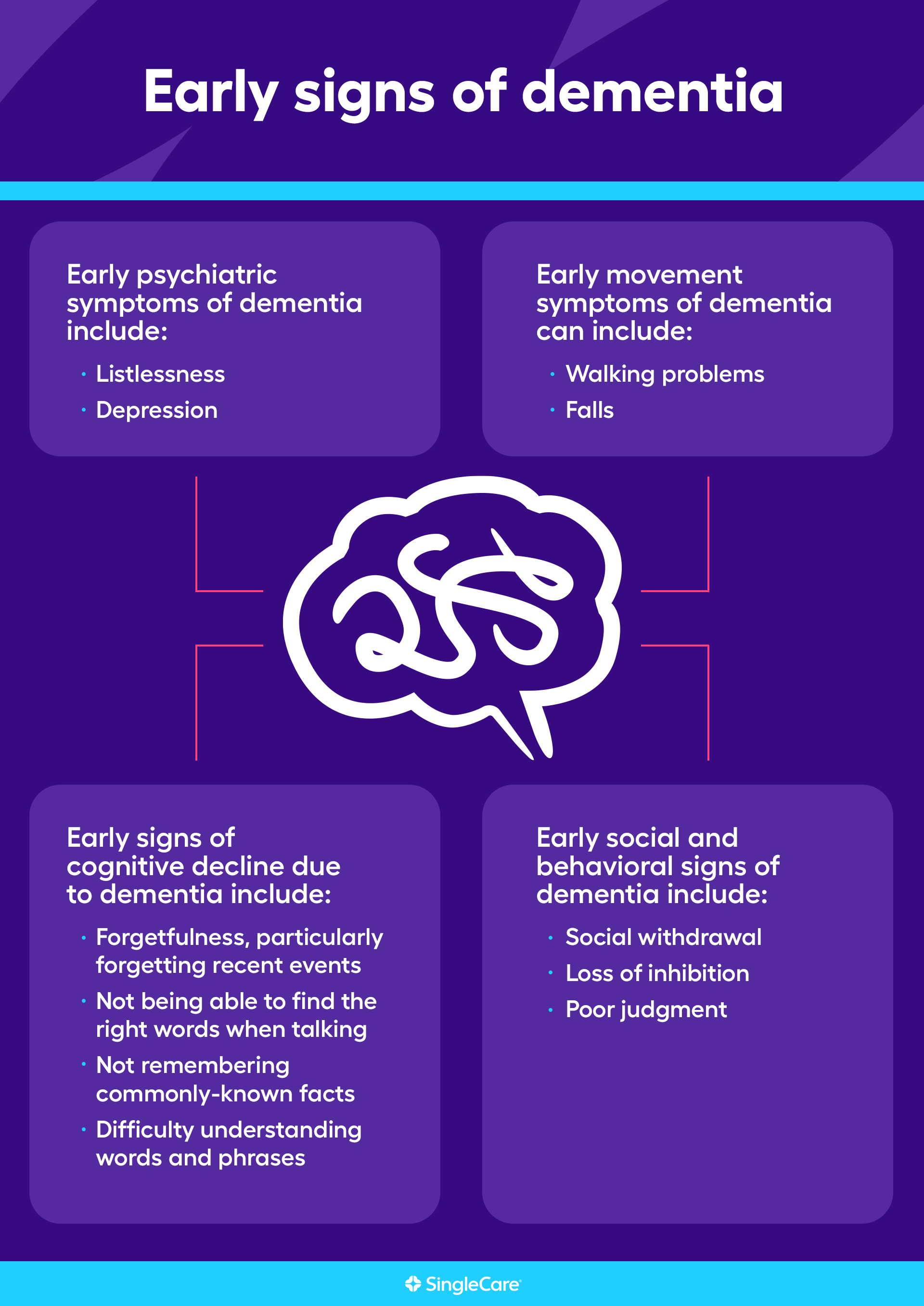What to Expect in the First Year After an Early Onset Dementia Diagnosis
What to Expect in the First Year After an Early Onset Dementia Diagnosis
Blog Article
Recognizing the Impact of Mental Deterioration on Day-to-day Live and Caregiving
Mental deterioration impacts day-to-day live in profound ways, affecting not just those identified yet additionally their caregivers. As cognitive decline advances, you could notice modifications in interaction and routine that obstacle both events. Comprehending these shifts is necessary for maintaining dignity and engagement. Yet exactly how do you adapt your caregiving methods to support a person traversing this complex trip? The solutions might shock you as we explore the nuances of this experience.
The Stages of Dementia and Their Impacts on Every Day Life
As you navigate the journey of mental deterioration, recognizing its phases can considerably impact how you take care of life. Mental deterioration normally advances via 3 major phases: early, center, and late. In the onset, you might discover occasional memory gaps or problem finding the best words. This can cause frustration, but recognizing these signs early aids you adjust your routine and look for assistance.
Throughout the center stage, you'll experience a lot more noticeable cognitive decrease. Daily jobs may come to be difficult, and maintaining your independence might require adjustments. Making use of suggestions and streamlining your atmosphere can help.
In the late stage, individuals typically need significant help with everyday activities. Planning for care comes to be necessary, concentrating on comfort and quality of life. By understanding these stages, you're better equipped to respond proactively, ensuring you or your loved one can navigate the obstacles with dignity and elegance.

Changes in Communication and Social Communication
Exactly how do changes in interaction affect your day-to-day communications as mental deterioration progresses? As mental deterioration developments, you might see that easy discussions become tough.
You may discover it simpler to attach via these ways instead of relying exclusively on talked language. Paying attention skills can also transform; you may discover it more challenging to follow conversations or keep in mind what was simply claimed (Fall Risk). This can bring about misconceptions or feelings of isolation
Urging persistence and producing an encouraging environment can help. Participating in tasks that foster connection, like songs or art, can boost social communications. Bear in mind, maintaining connections is still feasible; it's nearly adapting to new means of communicating.
Impact on Daily Routines and Activities
While maneuvering day-to-day routines, you'll likely notice that tasks you as soon as completed easily come to be a lot more tough as dementia progresses. You could find yourself forgetting steps in familiar routines or struggling to recall where you placed products.
Adapting your environment can aid; for circumstances, identifying items or making use of lists can simplify tasks. Involving in recurring, structured tasks can likewise provide convenience and a sense of accomplishment. Remember, it's fine to ask for assistance.
Behavior and emotional Challenges
Guiding through daily regimens can bring about not simply useful obstacles, however additionally psychological and behavioral ones. You may see modifications in state of mind, such as enhanced stress and anxiety or frustration, which can originate from confusion or problem in finishing tasks. As you browse these moments, it is vital to acknowledge that your enjoyed one may share their feelings via habits like agitation or withdrawal.
These emotional responses can be uncertain and may occur without warning, leaving you both feeling bewildered. You might discover that acquainted atmospheres or regimens can help in reducing anxiousness, but preserving perseverance becomes significant. It is very important to confirm their feelings, even if you don't totally recognize them.
The Function of Caregivers in Sustaining People With Mental Deterioration
As a caregiver, you play a vital role in supplying emotional support for people with mental deterioration. Developing day-to-day care routines can create a feeling of security and comfort, assisting to alleviate their stress and anxiety. By recognizing their demands and making use of effective strategies, you can greatly boost their top quality of life.
Emotional Support Methods
When caring for somebody with dementia, recognizing the psychological landscape is necessary for offering effective assistance. Basic gestures, like holding their hand or preserving eye contact, can develop a sense of safety and security. Inevitably, do not fail to remember to take care of your very own psychological requirements; looking for assistance for on your own can improve your capability to care for them.
Daily Care Routines
Establishing daily care regimens is important for giving stability and convenience to individuals with mental deterioration, as these routines can help in reducing complication and anxiety. You can begin by outlining a consistent routine for dishes, activities, and remainder. This predictability aids your loved one really feel more protected and involved.
Incorporate familiar jobs, like folding washing or watering plants, which can evoke positive memories and cultivate a feeling of accomplishment. Use visual hints, such as checklists or calendars, to lead them through the day.
Be versatile, though; adjust routines as needed based upon their state of mind or power degrees. Fall Risk. Keep in mind, your perseverance and understanding these details are crucial in steering their transforming needs, ensuring they feel supported and valued throughout their every day life
Developing a Safe and Comfy Living Setting
Developing a safe and comfortable living environment is vital for individuals with dementia. You'll intend to make home security adjustments that minimize dangers and assure knowledge to offer a sense of comfort. By concentrating on these aspects, you can help create a space that supports both safety and health.
Home Safety And Security Alterations
As you browse the obstacles of mental deterioration, making home safety and security alterations can greatly enhance convenience and security. Beginning by getting rid of tripping threats like carpets and clutter, guaranteeing walkways are clear. Mount grab bars in restrooms and non-slip floor coverings in the shower to avoid drops. Take into consideration making use of brighter lights and night lights to improve exposure, specifically during nighttime. Label vital locations, such as the shower room and kitchen, with clear indicators to aid with alignment. websites Protect any sharp things or hazardous materials unreachable. Additionally, analyze your home's alarms and locks to validate they're easy to use and offer tranquility of mind. These adjustments not only advertise safety and security however additionally motivate independence, permitting your liked one to really feel more secure in their atmosphere.
Convenience and Knowledge
After guaranteeing a secure environment with needed alterations, cultivating comfort and experience is important for people with mental deterioration. Start by customizing their room. Usage familiar shades, decors, and photographs that evoke delighted memories. A favorite covering or chair can provide a sense of security. Maintain a constant regular to assist them really feel based and reduce anxiety. Basic, familiar meals can also create a reassuring environment. Maintain paths clutter-free and clear to avoid confusion. Integrate soft illumination, as intense lights can be disorienting. Take into consideration including comforting aromas, like lavender, to advertise leisure. Taking part in acquainted activities, such as listening to music or gardening, can enhance their sense of belonging, making their living click now environment a true haven.
Strategies for Effective Caregiving and Assistance
While maneuvering the challenges of mental deterioration care can feel frustrating, implementing efficient methods can considerably improve both the caretaker's and the individual's everyday experience. Beginning by developing a routine; predictability helps reduce anxiousness for both you and your liked one. Use clear, straightforward communication-- straight inquiries and short sentences can avoid confusion.

Do not forget to look after yourself; routine breaks and connect with support system. Sharing experiences with others in comparable circumstances can offer useful insights and emotional alleviation.
Last but not least, stay client and versatile. Dementia can bring uncertain changes, so adjusting your strategy is vital. By employing these strategies, you can cultivate a much more positive setting that profits both you and your liked one.
Often Asked Questions

What Are the Various Kinds Of Mental Deterioration?
You'll find several sorts of dementia, including Alzheimer's, vascular dementia, Lewy body dementia, and frontotemporal dementia. Each type affects memory and cognitive feature differently, so understanding the distinctions is important for proper diagnosis and care.
How Can I Aid A Person With Early-Stage Dementia?
You can help someone with early-stage mental deterioration by holding your horses, offering assistance, and urging them to involve in activities they delight in. Keeping routines regular and preserving open interaction can likewise make a significant distinction in their day-to-day life.
Are There Financial Resources Available for Dementia Treatment?
Yes, there are funds available for dementia treatment. You can check out entitlement program programs, nonprofit companies, and insurance policy choices. It's likewise a good idea to consult neighborhood companies for certain resources tailored to your scenario.
What Legal Factors To Consider Should Caregivers Understand?
As a caregiver, you should consider power of lawyer, medical care proxies, and guardianship legislations. It's necessary to recognize the legal civil liberties and obligations you hold, ensuring your liked one receives ideal care and defense.
How Can I Handle Caregiver Stress?
You can deal with caregiver stress and anxiety by focusing on self-care, looking for support from groups or close friends, setting realistic expectations, taking breaks, and exercising relaxation strategies. Keep in mind, your health matters simply as high as the person you're looking after.
Comprehending the Influence of Mental Deterioration on Daily Life and Caregiving.
As you browse the journey of mental deterioration, comprehending its phases can noticeably influence how you handle day-to-day life.While navigating day-to-day regimens, you'll likely discover that tasks you as soon as finished effortlessly ended up being a lot more challenging as mental deterioration proceeds.Establishing daily treatment regimens is vital for giving security and comfort to individuals with dementia, as these regimens can assist lower complication and anxiety.While maneuvering the difficulties of dementia care can really feel overwhelming, executing efficient methods can greatly improve both the caregiver's and the patient's daily experience.
Report this page